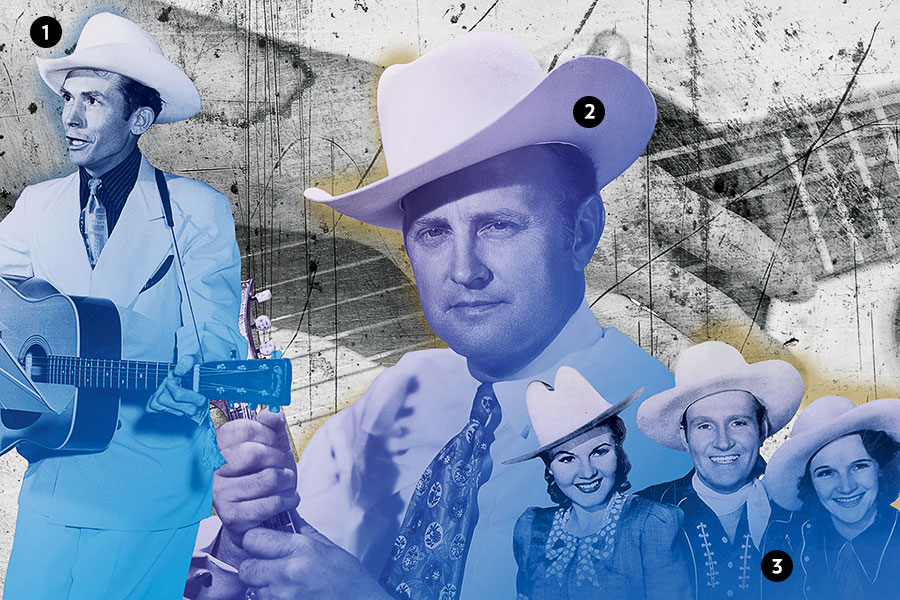1 The Blues Brothers’ performance at Bob’s Country Bunker bore some truth.
The late John Prine recalled musicians from his youth playing on stages encased in chicken wire in Clark Street honky-tonks near Wrigley Field. This protected them from the rowdy, fight-prone 1960s audiences.
2 The people make the music.
While some of the industry’s growth here was due to shrewd moves by radio executives – from 1924 through World War II, the National Barn Dance, broadcast live on WLS from the South Loop, was the heart of commercial country music — much of it was organic. Between 1950 and 1969, 3.3 million people left Appalachia for points north, including Chicago.
3 Everything old is new again.
In a derisive 1957 Chicago Daily Tribune article, patrons of “hillbilly dives” on Madison Street between Kedzie and Homan Avenues were described as sporting “fascinating attire”: “The women wear blue jeans, sacks (preferably red plaid), or cheesey brocade and spangles. Men are in work pants, coveralls, leather motorcycle jackets, and Presley sideburns.” Exactly what one would expect at a honky-tonk…in 2023.
4 We almost had a housing project named after Hank Williams.
The country singer made it to Chicago at least once, in 1950, to perform at the Palmer House for the Music Operators of America, a conference of jukebox companies. Still, he was the namesake of Hank Williams Village, an affordable housing development proposed for Uptown in the 1960s, when 80 percent of the neighborhood’s population was from down south. Planners envisioned a project with playgrounds, medical clinics, and a grocery co-op. But when federal loans fell through, the land was used for Truman College instead.
5 The Father of Bluegrass recorded the most significant songs of his career here.
During two mid-1940s sessions from the banks of the Chicago River — at the Columbia Records studio in the Wrigley Building — Bill Monroe laid down 28 tracks, including “Blue Moon of Kentucky,” “The Old Cross Road,” “Toy Heart,” and “Wicked Path of Sin.” Lester Flatt and Earl Scruggs were part of his backing band, the Blue Grass Boys.



